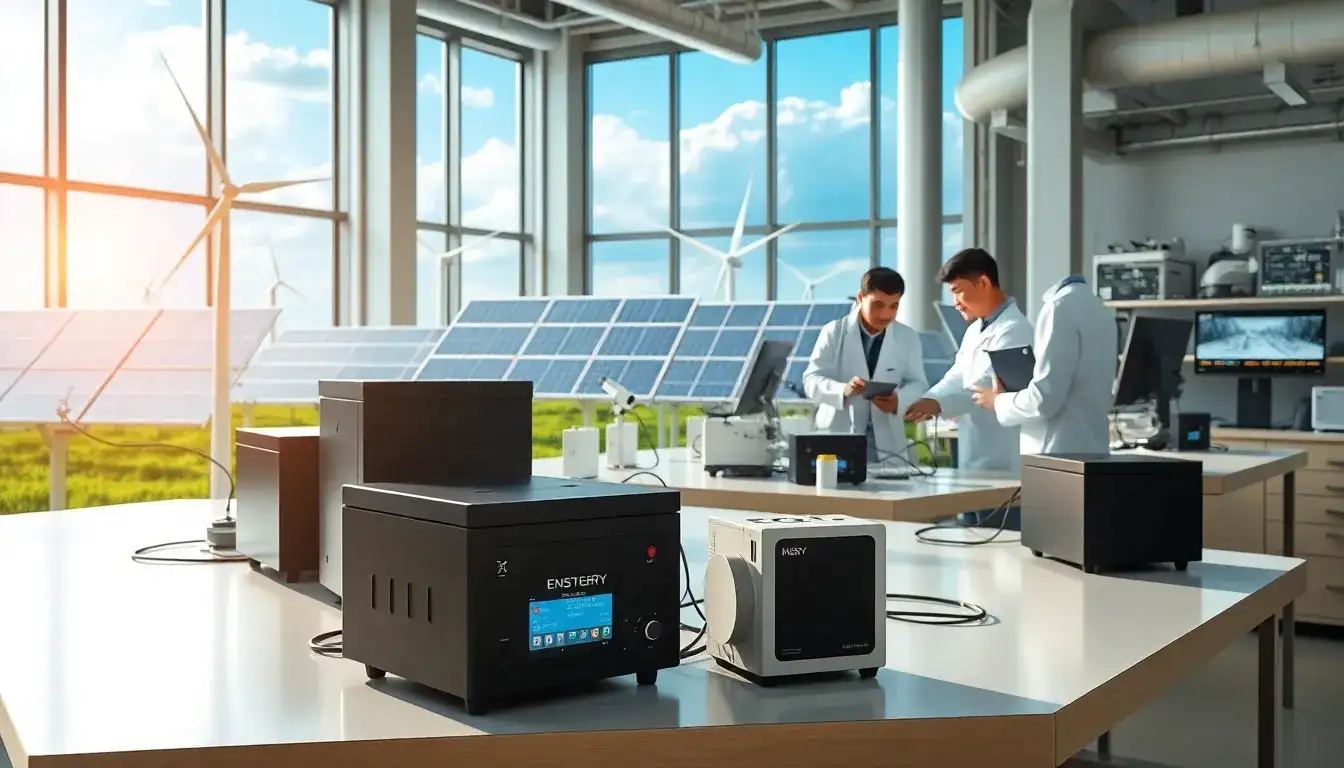
China National Nuclear Corporation (CNNC) is making significant strides in the new energy sector, particularly in the field of energy storage. The 2025 Government Work Report emphasizes the urgent development of advanced manufacturing clusters, including commercial aerospace, Beidou applications, and the rapidly growing new energy storage industry. In response, the Ministry of Industry and Information Technology and seven other departments have released an action plan for the high-quality development of the new energy storage manufacturing industry. This plan aims for China to achieve a prominent international competitive edge in the entire energy storage manufacturing chain by 2027, enhancing the competitiveness and innovative capacity of leading enterprises and fostering developments that are high-end, intelligent, and environmentally friendly.
As a leader in the new energy industry, CNNC is driving technological innovation and industrial upgrades in the energy storage sector. The company is advancing rapidly across various domains including electrochemical storage, mechanical storage, electromagnetic storage, thermal storage, and hydrogen storage.
In the electrochemical storage sector, CNNC’s Jiayuguan 500 MW/1000 MWh Independent Storage Project stands out as a key pilot demonstration project for new energy storage in Gansu Province. It is the province’s first large-scale electrochemical storage project with a capacity exceeding 100 MW, employing a mixed technology of a 475 MW lithium iron phosphate storage system paired with a 25 MW supercapacitor storage system, currently the largest supercapacitor system in the country.
Another significant project is the Xinhua Wushi 500,000 kW/2,000,000 kWh grid-connected energy storage project, located in the Aheya photovoltaic park. This facility has a total installed capacity of 500,000 kW/2,000,000 kWh, including 250,000 kW/1,000,000 kWh lithium iron phosphate storage and 250,000 kW/1,000,000 kWh vanadium flow storage. It includes a 220 kV booster station and a living area, with a storage duration of four hours, capable of powering approximately 300,000 households for a day with a single full charge.
Additionally, CNNC’s Tianwan 400 MWh Storage Power Station is an independent grid-side storage project selected as a pilot demonstration by the National Energy Administration and is set to be fully connected to the grid by June 2024. It is the largest electrochemical storage project in Jiangsu Province, designed to assist in adjusting regional energy structures. The project utilizes lithium iron phosphate batteries, providing up to 400,000 kWh of electricity per charge, sufficient for 40,000 three-person households in a day, with a charging time of just two hours and an efficiency of 96%.
In the area of concentrated solar power storage, CNNC’s Yumen Solar Thermal Storage + Photovoltaic + Wind Power Demonstration Project is expected to achieve full capacity grid connection by September 2024. This project has a total installed capacity of 700,000 kW and is one of the first integrated projects in Gansu Province, featuring a 100,000 kW solar thermal storage system that is currently the world’s largest operating molten salt linear Fresnel solar thermal storage project.
In mechanical energy storage, the Jingzhou 100 MW Flywheel Energy Storage Project is under construction, with a planned capacity of 100 MW for independent frequency regulation. This project, selected as a pilot demonstration project by the National Energy Administration, aims to provide a basis for the application of flywheel storage technology, featuring a lifecycle with no chemical pollution, complete recyclability of materials after decommissioning, and a lifespan exceeding 20 years, which is 3-4 times longer than lithium batteries.
In hydrogen storage, the Ke Right Front Banner Wind-Storage Hydrogen Production and Ammonia Production Integrated Demonstration Project aims to utilize wind power with a total capacity of 500,000 kW, complemented by lithium iron phosphate storage. The hydrogen production capacity is set at 56,000 standard cubic meters per hour, with a total equipment load of approximately 280,000 kW and a planned installation of 56 alkaline electrolyzers with a capacity of 1,000 standard cubic meters per hour.
CNNC is committed to advancing its energy storage technologies and projects, which are essential for enhancing energy efficiency and facilitating the transition to renewable energy sources in China.







